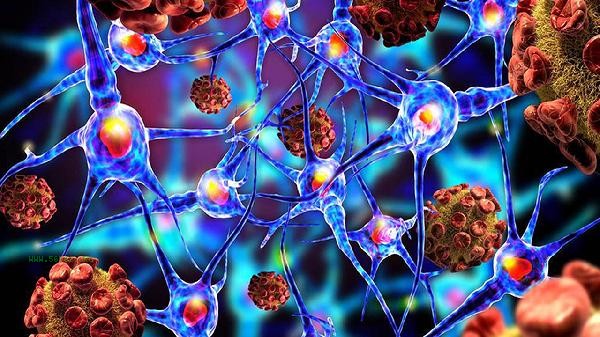Elevated levels of eosinophils may be caused by allergic reactions, chronic inflammation, myeloproliferative disorders, endocrine disorders, or drug side effects.
1. Allergic reactions: When allergens stimulate the body to produce an immune response, eosinophils release mediators such as histamine to participate in the reaction. Commonly seen in patients with hay fever, food allergies, or allergic dermatitis, blood tests show a mild increase in the proportion of this cell, usually not exceeding 2%. After removing the allergen, the values can gradually return to normal, and severe allergies require intervention with antihistamines.

2. Chronic inflammation:
Chronic inflammatory diseases such as rheumatoid arthritis and ulcerative colitis can continuously activate the immune system. As inflammatory regulatory cells, eosinophils may experience compensatory elevation during the course of the disease, accompanied by an increase in C-reactive protein. Controlling the primary disease is the key to improving indicators. 3. Bone marrow proliferative diseases: Hematopoietic system abnormalities such as polycythemia vera and chronic myeloid leukemia can directly lead to pathological proliferation of eosinophils. This type of condition is often accompanied by symptoms such as splenomegaly and abnormal sweating. Bone marrow puncture examination can confirm the diagnosis and requires specialized treatment in hematology.
4. Endocrine disorders:
Endocrine diseases such as hypothyroidism and diabetes may affect granulocyte differentiation. When thyroid hormone is insufficient, the hematopoietic function of the bone marrow is inhibited, and the relative proportion of eosinophils increases, accompanied by typical symptoms such as elevated TSH and fatigue. Hormone replacement therapy can improve indicators.

3. Drug side effects:
Long term use of glucocorticoids, interferons, and other drugs may interfere with granulocyte metabolism. After 2-4 weeks of discontinuation, the indicators can usually recover on their own, and regular monitoring of blood routine is necessary during the medication period. The bone marrow suppression caused by anticancer drugs may also result in transient increase of eosinophils.
It is necessary to maintain a balanced diet in daily life, increase the intake of foods rich in vitamin B6 such as chicken and bananas in moderation, and avoid contact with known allergens. It is recommended to engage in aerobic exercise such as brisk walking and swimming three times a week for at least 30 minutes each time to enhance immune regulation function. When there is persistent fatigue, low-grade fever, or skin bruising, it is necessary to promptly recheck the blood routine and complete the bone marrow examination. When pregnant women and children have abnormal indicators, it is recommended to prioritize screening for possible parasitic infections.










Comments (0)
Leave a Comment
No comments yet
Be the first to share your thoughts!